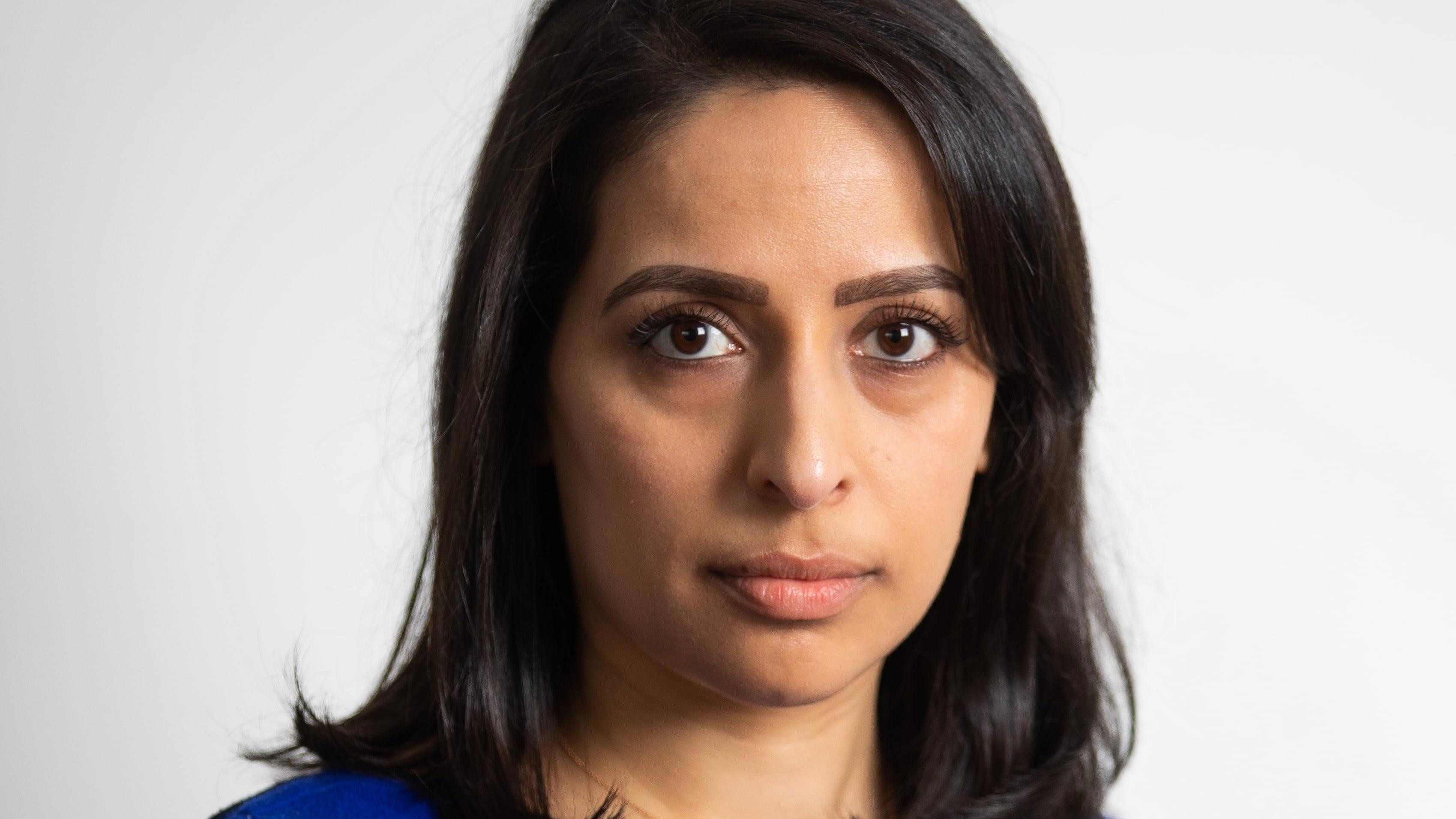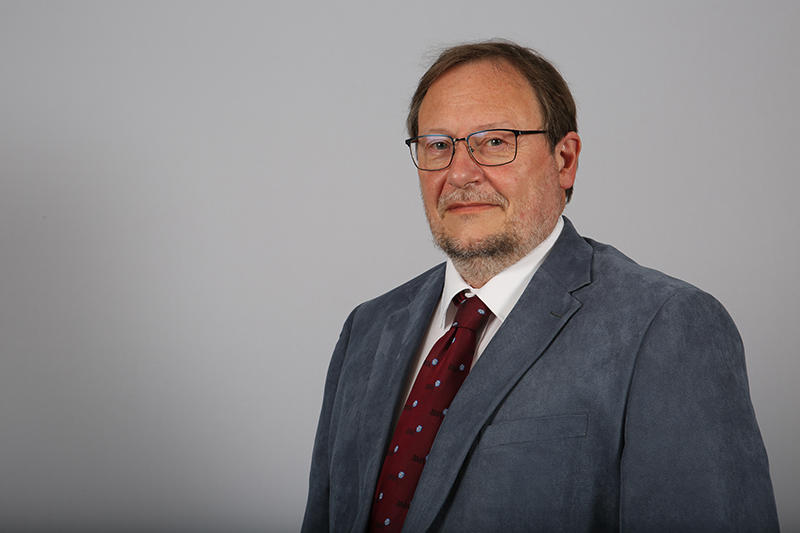 Latifa Patel, ST7 paediatric respiratory trainee based in the north-west of England on an out-of-programme career break. BMA representative body chair
Latifa Patel, ST7 paediatric respiratory trainee based in the north-west of England on an out-of-programme career break. BMA representative body chair
One of my aims is to increase the democratic input from our members, ensuring our policy is representative. I particularly enjoy the EDI (equality, diversity and inclusion) portfolio and elevating the voices of minoritised groups.
Coupling these two remits together I have made it our mission to ensure our democratic processes are as inclusive and accessible as possible. My primary role is to organise and chair our annual representative meeting. This is where policy is formed which directs the BMA’s work during the year.
Last year, we held our first hybrid meeting. Over my term I will make our meeting more representative, more relevant and ultimately serve you better. We have a retention crisis in the NHS.
The lack of autonomy, and flexibility, especially for junior doctors, is driving our colleagues away. From the way locally employed doctors are treated, to the inflexibility in the undergraduate timeline, from the removal of rest facilities to the pressure colleagues are put under to cover rota gaps – the NHS has to do better and we are committed to holding those in power to account.
I want to emphasise the BMA is here for the profession, through its wellbeing and member-relations services. Whatever your issue is, tell us and we’ll respond.
Contact me at @DrLatifaPatel or [email protected]
 Emma Runswick, senior house officer working in older adult community mental health in Greater Manchester. BMA deputy council chair
Emma Runswick, senior house officer working in older adult community mental health in Greater Manchester. BMA deputy council chair
I am active in the BMA because I have a solid understanding of the good unions can do, and a recognition that medical students and doctors have not yet organised to their full potential.
My role as deputy chair of council is to make our union effective at improving our conditions. That needs lasting strategic and operational change in our union, to focus on collective bargaining and collective action that addresses our issues at work.
We are shifting to be ‘an organising union’ and not just a service provider. Our priorities must be: pay; pensions; working conditions, including for those outside the NHS; staffing; and workload. We also need to shift our culture. I am prioritising anti-sexism and anti-racism work. I am pursuing increased transparency for our representative committees.
Work needs to happen between meetings to achieve outcomes for members. My message for doctors and medical students is one of hope. The situation is dire, but we have power together to change our lives, and to improve the care we provide.
I’m the youngest ever chief officer, the second junior doctor (after Latifa) and the first LGBTQ+ chief officer who is out. The new chief officer team is the most diverse ever and we also have a radical agenda. We want to support you to win.
Contact me at @ERunswickBMA or [email protected]
 Phil Banfield, consultant obstetrician in north Wales, and honorary professor in the school of medicine at Cardiff University. BMA council chair
Phil Banfield, consultant obstetrician in north Wales, and honorary professor in the school of medicine at Cardiff University. BMA council chair
As BMA council chair, I not only oversee the functions of the body tasked with enacting policy made at the ARM, but also the BMA board, which is responsible for the business strategy, practical working and financial operation of the BMA.
I also am chair of trustees of our charitable arm, the BMA Foundation. I represent doctors because I find it really difficult to stand by when I see injustice or discrimination – and I have got into regular and repeated trouble for highlighting these over the years.
Once I found that success became more likely, my ambitions to effect change increased and I’ve gone on from there. My role is to enable and facilitate the changes identified already within the BMA to increase representation, participation and presence in the workplace.
I also have a duty as board chair to build the business side of the BMA (in the face of significant financial challenges) so that we can achieve more for members in their workplaces.
I would like to get to a point where doctors, as highly skilled professionals, are asked regularly what they need to deliver the care they are being asked to provide – and it is provided. Doctors are the solution, not the problem.
Email [email protected]
 Trevor Pickersgill, consultant neurologist, University Hospital of Wales in Cardiff. Treasurer
Trevor Pickersgill, consultant neurologist, University Hospital of Wales in Cardiff. Treasurer
I chair the finance committee, and lead on (among other things) estates, expenses, honoraria, reserves, accounts, and annual reports.
I am a director of The BMJ too, one of our wholly owned subsidiary companies. I’ve held a number of representative roles, including chair of the BMA junior doctors committee, and I was part of the team that delivered the banded juniors contract (still extant in Scotland and Wales).
The main issue in the BMA right now and for the next few years is our financial position – we spend more than we get in through subscriptions and other income and we need to get to a position where we do not make a loss on our everyday activities.
We have a working recovery plan, looking at areas such as estates, conferences and committees, and membership growth. In terms of what I would most like to see improved about doctors’ working lives, it would be better pay, respect from colleagues and managers, and fewer managers (‘on tap not on top’ as we say in Wales).
As doctors we need more ability to feel we are in control of our workload and destiny. Fix the pensions tax disaster and many doctors like me would be happier overnight. We are the most diverse chief officer team in the history of the BMA.
We are absolutely committed to representing all of our members.
We are here to listen, and we encourage you to get in touch, with your questions and experiences.
Email [email protected]

